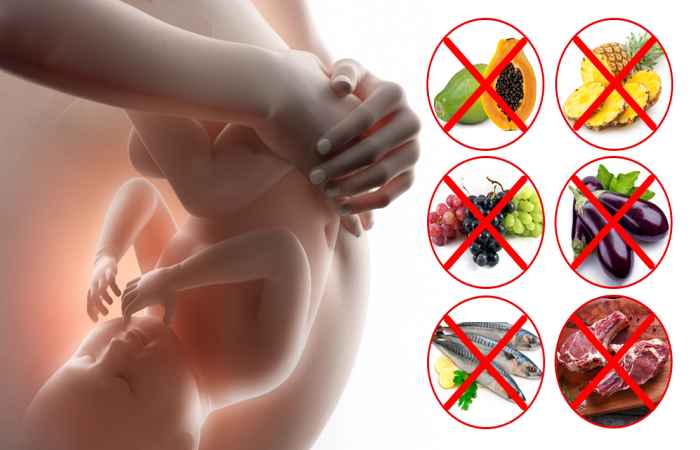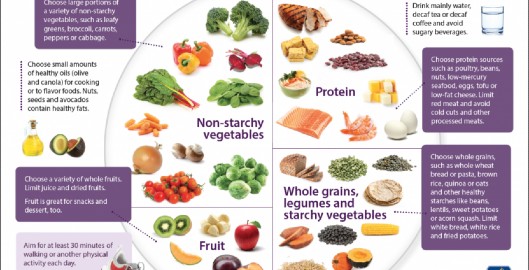Learn the Best Way to Taking Care of Yourself and Your Baby While You’re Pregnant
Discovering that you’re pregnant is an exciting and joyous time, staying healthy during pregnancy is filled with planning and anticipation for your baby’s future. It can also be a time filled with questions and concerns — pregnancy leads to many changes in your body, as well as that of your growing fetus.
With all of these changes, it’s important to stay healthy and work with your physician to find what works best for your individual pregnancy.
In this section, our experts provide general guidelines for staying healthy during pregnancy and what you can expect throughout your three trimesters.
The First Trimester

It’s important to take care of your baby, even before he or she is born. You can do this by living a healthy lifestyle and keeping doctor’s appointments while you’re pregnant.
This is called prenatal care. You’re more likely to have a healthy birth if you maintain a healthy pregnancy.
Health care during pregnancy is called prenatal care. Getting prenatal care can help you have a healthier baby.
It also lowers the risk of your baby being born too early, which can lead to health problems for your baby so staying healthy during pregnancy is very important.
Prenatal Health Care
Key to protecting the health of your child is to get regular prenatal care. If you think you’re pregnant, call your health care provider to schedule your first prenatal appointment.
Many health care providers, though, won’t schedule the first visit before 8 weeks of pregnancy, unless there is a problem.

At this first visit, your health care provider will probably do a pregnancy test, and will figure out how many weeks pregnant you are based on a physical examination and the date of your last period.
He or she will also use this information to predict your delivery date (an ultrasound done sometime later in your pregnancy will help to verify that date)
If you’re healthy and there are no complicating risk factors, most health care providers will want to see you:
- every 4 weeks until the 28th week of pregnancy
- then every 2 weeks until 36 weeks
- then once a week until delivery

Staying Healthy During Pregnancy
Throughout your pregnancy, your health care provider will check your weight and blood pressure while also checking the growth and development of your baby.
By doing things like feeling your abdomen, listening for the fetal heartbeat starting during the second trimester, and measuring your belly.
During the span of your pregnancy, you’ll also have prenatal tests, including blood, urine, and cervical tests, and probably at least one ultrasound.
Can I take medicine?
Check with your doctor before taking any medicine. This includes prescriptions, pain relievers, and over-the-counter medicines.
These are tips in staying healthy during pregnancy, Some medicines can cause birth defects, especially if taken during the first 3 months of pregnancy.
Can I take vitamins?

Pregnant women should take at least 400 micrograms (mcg) of folic acid each day. It can help prevent problems with your baby’s brain and spine. Ask your doctor if you need more than 400 mcg.
It’s best to start taking folic acid before you get pregnant. You can get folic acid from taking a prenatal vitamin. You should take this every day. Don’t take other vitamins or supplements without your doctor’s approval.
Follow a healthy eating pattern.

- Eat a variety of vegetables, fruits, whole grains, fat-free or low-fat dairy products, and protein foods.
- Choose foods and drinks with less added sugars, saturated fats, and sodium (salt).
- Limit refined grains and starches, which are in foods like cookies, white bread, and some snack foods.
- If you are feeling sick, try eating a piece of whole-grain toast or whole-grain crackers.
Don’t eat certain foods.
These foods may have bacteria in them that can hurt your baby. Stay away from:
- Raw (uncooked) or rare (undercooked) fish or shellfish, like sushi or raw oysters
- Soft cheeses (like feta, Brie, and goat cheese), unless they are pasteurized
- Raw or rare meats, poultry, or eggs
- Unpasteurized juices or milk
- Lunch or deli meats, smoked seafood, and hot dogs – unless they are heated until steaming hot
Can I have sex?
It’s safe to have sex while you’re pregnant. However, talk to your doctor if you have concerns or are at risk for problems is part of staying healthy during pregnancy.
Some women’s level of interest in sex changes when they’re pregnant. As you grow, you may need to try different positions, such as lying on your side or being on top.

Questions to ask your doctor
- What medicines can I take during pregnancy?
- When should I start taking a prenatal vitamin? What kind is best?
- How much folic acid do I need to take each day?
- How can I prevent or reduce swelling?
- How much weight should I gain while pregnant?
After the Baby Is Born
How can I stay healthy after my baby is born?
After you deliver your baby, your health may be better if you try to return to a healthy weight slowly. Not losing your “baby weight” may lead to overweight or obesity later in life.
Slowly returning to a healthy weight may lower your chances of diabetes, heart disease, and other weight-related problems.

Healthy eating, regular physical activity, adequate sleep, and other healthy habits after your baby is born may help you return to a healthy weight and give you energy.
After your baby is born
- Consume foods and beverages to meet your calorie needs.
- Regular physical activity will continue to benefit your overall health. Moderate-intensity physical activity will increase your fitness and can improve your mood.
Summary of Tips for Pregnancy

- Talk to your health care professional about how much weight you should gain during your pregnancy, and regularly track your progress.
- Consume foods and beverages rich in folate, iron, calcium, and protein. Talk with your health care professional about prenatal supplements (vitamins you may take while pregnant).
- Eat breakfast every day.
- Eat foods high in fiber, and drink fluids (particularly water) to avoid constipation.
- Avoid alcohol, raw or undercooked fish, fish high in mercury, undercooked meat and poultry, and soft cheeses.

- Do moderate-intensity aerobic activity at least 150 minutes a week during your pregnancy. If you have health issues, talk to your health care professional before you begin.
- After pregnancy, slowly get back to your routine of regular, moderate-intensity physical activity.
- Gradually return to a healthy weight.


































